We’re Here, and We’re Queer! – a collection of LGBTQ+ TV treats.
1.
CHUCKY (SYFY)
Anyone following the career of Don Mancini, David Kirschner, Brad Dourif and their four-foot killer doll, Chucky, will know that queer identity and diversity thread through their seven-movie series. However, many of us wondered where the pint-sized nutter would take us next following Curse and Cult of Chucky. Therefore, when Chucky the TV series was announced, I was filled with excitement and trepidation. Would Mancini and Co. honour the stories that had come before or opt for something radically different? Thankfully, they picked the former, and we got a direct continuation of the story built up over seven glorious movies. In many ways, Chucky season one feels like the Child’s Play 3 that should have been, as it centres on the feelings of detachment adolescence inevitably brings. Over three delightfully wicked seasons, Mancini and Co’s discussions on sexual orientation, gender, difference, and inclusion create a unique TV horror that combines classic coming-of-age themes with a continuation of thirty-plus years of Chucky lore resulting in a wild, entertaining and proudly queer slice of TV horror that will appeal to older fans and bring on board a host of new ones.
2.
QUEER AS FOLK (CHANNEL 4)
Some TV shows carry such immense power that people can recall exactly where they were when the first episode landed in our living rooms. I know exactly where I was on the 23rd of February 1999 when Channel Four’s Queer as Folk arrived on our screens. Russell T Davies would remove a legacy of gay men as non-sexual figures within the opening fifteen minutes and, in the process, shock and delight a whole nation. It was unapologetically provocative, bold, joyous and wicked as it danced down Manchester’s Canal Street and celebrated late 90s hedonism, sex, friendship and queer confidence. Queer as Folk would change TV forever and usher in a new age of LGBTQ+ storytelling across the world. Russell T Davies didn’t just smash the rainbow-coloured glass ceiling; he took a sledgehammer to it!
WE’RE HERE, AND WE’RE QUEER!
3.
ORANGES ARE NOT THE ONLY FRUIT (BBC)

The BBC’s adaptation of Jeanette Winterson’s semi-autobiographical novel Oranges Are Not the Only Fruit is a milestone in LGBTGIA+ TV history. Like Queer as Folk nine years later, Oranges Are Not the Only Fruit would end up at the centre of public outrage and debate for its portrayal of teenage sexuality and the hate-filled acts of a Pentecostal Church toward a young woman, Jess (Charlotte Coleman), due to her emerging sexuality. Directed by Beeban Kidron, Oranges Are Not the Only Fruit would win the TV BAFTA for Best Drama Series and Actress. But more importantly, it would challenge TV audiences to rethink the role of religion in hate and discrimination through a wickedly sharp screenplay that shone a light on religious conversion therapy.
4.
IN THE FLESH (BBC)
Horror has always provided an important home for Queer storytelling and representation, from Cat People (1942) to The Haunting (1963). As BBC Three began to find its feet, Dominic Mitchell’s 2013 take on a zombie apocalypse would place the relationship between Queer representation and horror centre stage on the small screen. Mitchell’s underrated series would bathe in complex discussions on mental health, sexuality and community as we followed a young queer Zombie called Kieran through the trials and tribulations of a new undead life and the teen experiences that came before it. Here, Mitchell would dovetail the standard zombie story with the experience of minority communities while maintaining a delightful mix of horror and comedy.
WE’RE HERE, AND WE’RE QUEER!
5.
DON’T EVER WIPE TEARS WITHOUT GLOVES (SVT)
Don’t Ever Wipe Tears Without Gloves is not the first TV drama to explore the AIDS epidemic, and neither will it be the last. But SVT’s Swedish drama is one of the most achingly beautiful and emotional stories of love in a landscape of discrimination, death and heartbreak ever made. Based on Jonas Gardell’s trilogy of books, it is the story of a young, gay Jehovah’s Witness who arrives in Stockholm looking to rebuild his life and the young man who befriends and protects him. But it is also the story of a liberal country during the AIDS epidemic and the cracks that would form in the liberal ideals Sweden held dear as homophobia raised its ugly head. It’s the story of a gay community in Stockholm under siege and love as gentle and delicate as the snowflakes that drift in the air.
6.
MY SO-CALLED LIFE (ABC)

Not every groundbreaking LGBTQIA+ story comes from a TV show dedicated to that theme. Sometimes, it’s a single episode or a lone character who changes everything and ushers in a new age of representation. My So-Called Life would be axed by ABC before its influence and merit were considered, and it remains one of the most influential teenage TV dramas ever to be cancelled after a single season. The bravery and innovation at the heart of My So-Called Life were vast. But it was a young Hispanic-Black character named Rickie Vasquez (Wilson Cruz) and a single Christmas episode ‘So-called Angels,” that would take LGBTQIA+ representation and storytelling in a brave new direction within teenage drama, changing the landscape of young adult TV forever.
7.
TIPPING THE VELVET (BBC)

Sarah Waters’ novels have been adapted several times on TV. But it was the 2002 adaptation of Tipping the Velvet that would take representations of lesbian love and sex in a whole new direction. This is the story of Nan (Rachael Stirling), a Whitstable oyster girl who falls for a music hall star named Kitty (Keeley Hawes) and enters a world of sex, prostitution and hidden Victorian desire. Tipping the Velvet, alongside another Waters adaptation, Fingersmith (2005), would open the door for The L-Word, Orange Is The New Black and others in the years following its release. Tipping the Velvet loses little in its journey from book to film, its bold and brave exploration of female sexuality wrapped in Victorian grandeur, grime and smoke.
8.
TALES OF THE CITY (CHANNEL 4)
It may seem quaint and gentle now, but the 1993 Channel Four and PBS drama based on Armistead Maupin’s fictitious Barbary Lane was unlike anything else on TV in the early 90s. Tales of the City would celebrate and reflect a time before AIDS brought a newly emerging 70s sexual liberation to an end. As a result, there is a wistful beauty to Maupin’s story and an undercurrent of sadness at what was lost. Yet, simultaneously, Tales of the City is joyous, bright and bold, a true trailblazer in every sense of the word. In the United States, it sparked debates about the potential defunding of PBS, and as a result, the public service broadcaster quickly backed out of the show despite its record ratings.
WE’RE HERE, AND WE’RE QUEER!
9.
POSE (FX)
Pose isn’t just a groundbreaking exploration of 1980s New York ball culture it’s the TV show that finally placed gay, queer and trans people of colour centre stage. Created by the TV legends Ryan Murphy, Brad Falchuk, and Steven Canals, Pose isn’t afraid to reflect, dissect and explore the diverse experiences of New York’s marginalised communities from the arrival of AIDS to the trans fight for representation, youth homelessness and sex work. In many ways, Murphy, Falchuk and Canals’ show is a dramatic reinterpretation and exploration of the 1990 documentary Paris is Burning. But it’s also a stunning love letter to the power of art and activism.
10.
SPECIAL (NETFLIX)
Based on his memoir, “I’m Special: And Other Lies We Tell Ourselves,” Ryan O’Connell plays Ryan Kayes, a gay man with cerebral palsy who lives with his mother, Karen (Jessica Hecht). O’Connoll’s comedy achieves a considerable amount in a series of short-bite episodes. From the interface between his sexuality and his cerebral palsy to parental protection and multiple layers of discrimination, Special isn’t short on discussions. But what makes this even more impressive is the short-form approach and the beautifully timed comedy that holds O’Connell’s show together. Conversations around sexuality and disability are rare, and while it only lasted two seasons, I hope this ‘Special’ slice of TV opens the door to more.
11.
IT’S A SIN (CHANNEL 4)
Russell T Davies’ long-awaited AIDS drama sat in development for a long time before finally making it to our screens in 2021. In many ways, It’s a Sin is a prequel or companion piece to Queer as Folk in the same way Cucumber is a sequel. It’s a drama that reflects a buoyant and vibrant 80s community under siege, its very survival held in the hands of those gay, trans, bisexual and straight people who fought their corner as AIDS ripped through the country. Davies’ discussions on the secrecy of 80s gay life, the need for escape from small towns to big cities and the political and social stigma of homosexuality are vivid, emotional and honest. At the same time, his dissection of the LGBTQ+ community highlights the diversity of its opinions and beliefs, many of which caused conflict and division due to a fear of oppression. The result is nothing short of a modern TV masterpiece. By exploring a community in need that a government ignored, It’s a Sin is the story of a new disease that was allowed to steal a whole generation’s lives, hopes, and talents.
12.
HEARTSTOPPER (NETFLIX)
Heartstopper’s groundbreaking place in LGBTQIA+ drama comes from its embrace of television aimed at a young teen audience aged 11-15. Based on Alice Oseman’s successful series of graphic novels, Heartstopper never shies away from big topics, including bullying, coming out, friendships and relationships. It tackles these through a delicate and honest lens that every young teen can relate to while offering young viewers a safe, secure and heartwarming place to explore their own experiences. This is a show that understands and respects its young teen audience from the first episode to the last while encouraging family discussion around its key themes and characters.
13.
WE ARE WHO WE ARE (HBO)
Luca Guadagnino’s ability to immerse his audience in delicate, person-centred stories of identity and vulnerability is renowned; for example, Call Me By Your Name in 2018 was a sun-drenched tale of desire and sexual awakening. Here, the journey we took alongside Elio was bittersweet, intoxicating and sensual as we bathed in the complex emotions of adolescence and sexuality. In his first foray into television, Guadagnino brings his trademark person-centred approach to episodic drama with a stunning eight-part coming-of-age story centred on army kids Fraser (Jack Dylan Grazer) and Caitlin ‘Harper’ (Jordan Kristine Seamón). We Are Who We Are is vivid, poetic and beautiful as it explores sexuality, love and gender, free from any social labels.
14.
OZ (HBO)

OZ was the opening chapter in long-form drama at HBO, and like any good book, it was a chapter that left you desperate for more. Many will argue that OZ marked the start of modern TV drama and invented many patterns and beats we are now accustomed to in all binge-worthy TV. Less discussed is the revolutionary role OZ played in LGBTQ+ representation. Oswald State Penitentiary wasn’t afraid of showing us male nudity, gay sex and homophobic violence; its narrative was laced with grit, social commentary, and unflinching drama from the first episode, and while bathed in stereotypes, we now largely reject, OZ would bring gay sex and love into the living rooms of a new generation and chip away at the 80s and early 90s barriers of censorship.
15.
GLEE (FOX)
When discussing Ryan Murphy’s Glee today, conversations often and understandably turn to the events off-screen, from Cory Monteith’s drug overdose at age 31 in 2015 to Mark Salling’s conviction for child pornography and subsequent suicide. We mustn’t seek to dismiss these dark events, but equally, it is essential to reflect on and celebrate Glee’s social impact on a whole generation of young LGBTQ+ people. Glee rarely gets the credit it deserves for its influence on mainstream music or its ability to place kids who had been ignored for years centre stage. For a whole generation of kids, whether gay, bisexual or straight, Glee made it cool to be different, trendy to be musical and damn right sexy to sing. For many LGBTQ+ young people, it was the first time they saw a loving gay relationship on screen and the first time they saw themselves reflected positively. Glee took the High School Musical phenomena and painted it in rainbow colours; there’s no doubt in my mind that William McKinley High School changed TV forever.
16.
LOVE VICTOR (HULU)
Building upon the success of Love, Simon in 2018, Love, Victor would challenge stereotypes, explore intersectionality and dive into a series of big relationship themes, from first love to ‘coming out’ and first-time sex. Its characters lit up the screen, from the sensitive yet strong Victor to the geeky and lovable Felix, the fiery but insecure Lake and the loving and sweet Mia. Throughout its three-season run, Love, Victor proved that gay teen drama had a place in the Disney stable, despite the company’s nerves in its initial development following the Disney/Fox merger. It’s now up to Disney to build upon the show’s legacy to prove its commitment to LGBTQ+ teens.
17.
SINGLE, OUT (DVD)
Coming out is never straightforward; it’s full of uncertainty, excitement and more than a few horny encounters, but it’s a long overdue step for Adam (Will Hutchins). His best mate, Marco (Ryan Stewart), has known he is gay for a while, and Adam is more than comfortable in his own skin. Plus, Adam has a new boyfriend, the pansexual Josh (Adam Mountain), who happens to be his brother Clay’s (Steven Christou) best mate. But coming out to family is the easy part; it’s life, love and family relationships that are far more tricky to navigate in Lee Galea’s Aussie gem, Single, Out.
18. MARY & GEORGE (SKY)
History is full of remarkable stories; many are so fascinating and rich that when they come along, you can’t help but wonder why they haven’t been adapted for the screen sooner. In British history, Tudor England (1485–1603) has long been the focus of lavish dramas from Wolf Hall to The Tudors and the upcoming Firebrand. But with 1000-plus years of history, our nation has so many stories to tell, and the House of Stuart from 1603 to 1714 is one of the most fascinating. The Stuarts ruled a United Kingdom for the first time. However, in reality, the kingdom was far from united. Their rule would see the gunpowder plot, Catholic oppression, and a civil war that would lead to the beheading of Charles I, son of King James. But, after a brief republic under Oliver Cromwell, Charles II would return to rule in a nation of parliamentary democracy and monarchy. Two people sat at the heart of King James and Charles I ‘s court, a mother and son whose names have long been sidelined, Mary & George Villiers.
Mary & George’s remarkable journey would see them travel from Brooksby, Leicestershire, to the heart of King James’ London court. While much discussion remains as to whether George was indeed King James’ lover and true partner for many years, one thing is clear: Mary was a woman who knew what she wanted and saw her son George and his beauty as an opportunity to make it happen. Based on Benjamin Woolley’s novel, “The King’s Assassin: The Fatal Affair of George Villiers and James I” DC Moore’s (Killing Eve) adaptation is sumptuous, enthralling, witty and devilishly horny as the exquisite Julianne Moore, the dashing and brilliant Nicholas Galitzine and the masterly Tony Curran lead a truly delectable ensemble in this tale of deceit, love, lies, poisoned prunes, desire and power. Every second of Mary & George is to be savoured like a fine wine as it pays homage to the sexuality of The Tudors, the deadly game of cat and mouse found in The Favourite and the political intrigue and gameplay of Wolf Hall. It is, in short, a glorious, proudly queer and fascinating exploration of King James’ court and the events, relationships and deals that would ultimately lead to civil war and the beheading of his son Charles I.
19.
SEX EDUCATION (NETFLIX)
Over four fabulous seasons, Laurie Nunn’s beautifully written show helped shape a brand new landscape in teen drama. Taking inspiration from Skins, Charlie Bartlett and a range of John Hughes films, Sex Education would couple edgy teen drama with bags of comedy and emotion as it blew the bloody doors off the continuing teen drama genre. From anxieties to first-time sex, sexuality, masturbation, role play, kink and more, no sexual practice was off limits in this devilishly brilliant slice of TV. But the real genius came from Sex Education’s ability to dovetail its sex talk with a genuine love for its characters. From the gentle, frustrated and endearing Otis (Asa Butterfield) to the sharp, loving and proud Eric (Ncuti Gatwa) and the spikey, worldly-wise Maeve (Emma Mackey), Sex Education not only understood the fears, apprehensions and questions many teens watching had; it enabled safe, humorous and tender discussions. Nunn’s comedy-drama is Fast Times at Ridgemont High for millennials, and while it creeks a bit toward the end, it has rightly earned its place in TV history.
20.
YOUNG ROYALS (NETFLIX)
Long before Red, White & Royal Blue graced our screens; Young Royals explored first love through the eyes of Prince Wilhelm, who had just arrived at a prestigious Swedish boarding school called Hillerska. Far from the day-to-day pressures and media interest in royal life, Wilhelm’s only wish was to avoid the spotlight. But, it’s not long before he meets gay scholarship student Simon, a non-boarder who doesn’t fit the image the other boys hold onto at any cost. But their connection is far more than a friendship, as Wilhelm and Simon tentatively touch hands in the dark and gaze into each other’s eyes when nobody is looking. But love is never straightforward when you are a part of the royal bloodline, and gay love is even more complicated. Over three seasons on Netflix, Young Royals captured the imagination and hearts of a whole generation of kids and proved that queer stories about young love are now mainstream.
21.
WRECK (BBC THREE)
Ryan J. Brown’s screenplay is as sharp as a knife that’s about to be plunged into an unsuspecting victim as he explores hierarchy, corporate greed, grizzly murder, desire, and mystery, first on a killer cruise ship and then at a wellness camp that is anything but. Wreck’s devilishly brilliant, proudly queer slasher horror roots pay homage to Midsommer, Scream, I Know What You Did Last Summer, Ready or Not, and Friday the 13th while finding a uniqueness that makes this one hell of an enjoyable romp. With Oscar Kennedy channelling his inner Jessie Walsh and a stunning ensemble cast, Wreck is dark, fun, queer and delightfully twisted.
22.
BIG BOYS (CHANNEL 4)
Throughout series one and two of the outstanding Big Boys, Jack Rooke beautifully balances effervescent comedy with discussions on childhood trauma, loss, friendship, identity and anxiety, joining the likes of Alan Bennett, Jonathan Harvey, and Lisa McGee in lacing sublime comedy with heartfelt emotion. But the success of Big Boys isn’t all down to Rooke’s exceptional writing; it’s also about the performances that help bring his characters to life in vivid technicolour. Llewellyn and Pointing are outstanding as they bounce off one another while hitting every comedic and emotional note. Watching them tear down the damaging social stereotypes surrounding male friendship and love is truly wonderful and heart-warming, and it’s what makes Big Boys tick. Add a fantastic ensemble cast, from Camille Coduri to Marc Warren and Harriet Webb, and Big Boys becomes a delightful cocktail of heartfelt emotion, belly laughs and beauty.
23.
CHANGING ENDS (ITV)
Growing up gay in 1980s Northampton is no bed of roses for the young Alan Carr, but it carries extra complexity due to his dad being the manager of the Cobblers (Northampton Town Football Club). Written by Alan Carr and Two Doors Down’s Simon Carlyle, Changing Ends is a delightful exploration of Carr’s early life, from his first day at secondary school to his love of drama and early comedic talent. To say Alan doesn’t quite fit in would be an understatement. His passion for The Golden Girls, dislike of football, oversized glasses, gappy teeth, squeaky voice, and penchant for performance make him unique in suburban Northampton life. Luckily, his mum, Christine (Nancy Sullivan), is full of love and support, no matter her son’s differences. At the same time, his football manager dad, Graham (Shaun Dooley), is utterly confused by his son’s behaviour as he struggles with a football club at the bottom of the fourth division and a ground falling apart at the seams.
At the heart of this joyous and tender coming-of-age comedy is the young Oliver Savell, who perfectly captures Carr’s camp, theatrical and cutting humour through a performance that is as near to perfection as you can get. The result is a hilarious and heartwarming semi-autobiographical comedy that shines through its performances, wit and endless charm.
24.
FELLOW TRAVELERS (PARAMOUNT +)
Fellow Travelers isn’t just about our shared community history; it’s a reminder that equality, freedom and hope aren’t offered on a plate; we have to fight for and maintain these freedoms by coming together as a community. We must learn from the past in shaping the future as we uncover a community history that has often been airbrushed away while also understanding the impact of intergenerational trauma that still haunts us all. Fellow Travelers isn’t just a landmark in gay drama, like Angels in America before it; it is a rallying call for something better, as it asks us who and what we want to be and how we combat a society that, all too often, still dictates the opportunities available. It is, quite simply, one of the best TV dramas of the past decade.
25.
GENTLEMEN JACK (BBC)

Created by Sally Wainwright (Happy Valley), it took a long time to bring Gentleman Jack to the screen. Set in Halifax, West Yorkshire, in 1832, Suranne Jones’ sublime portrayal of Miss Anne Lister, a diarist who is often called “the first modern Lesbian”, is not only utterly captivating but incredibly fun. With an ensemble that includes Sophie Rundle, Joe Armstrong, and Gemma Whelan, Gentleman Jack is a 19th-century delight and a beautiful exploration of lesbian love and social oppression at the height of the Industrial Revolution.

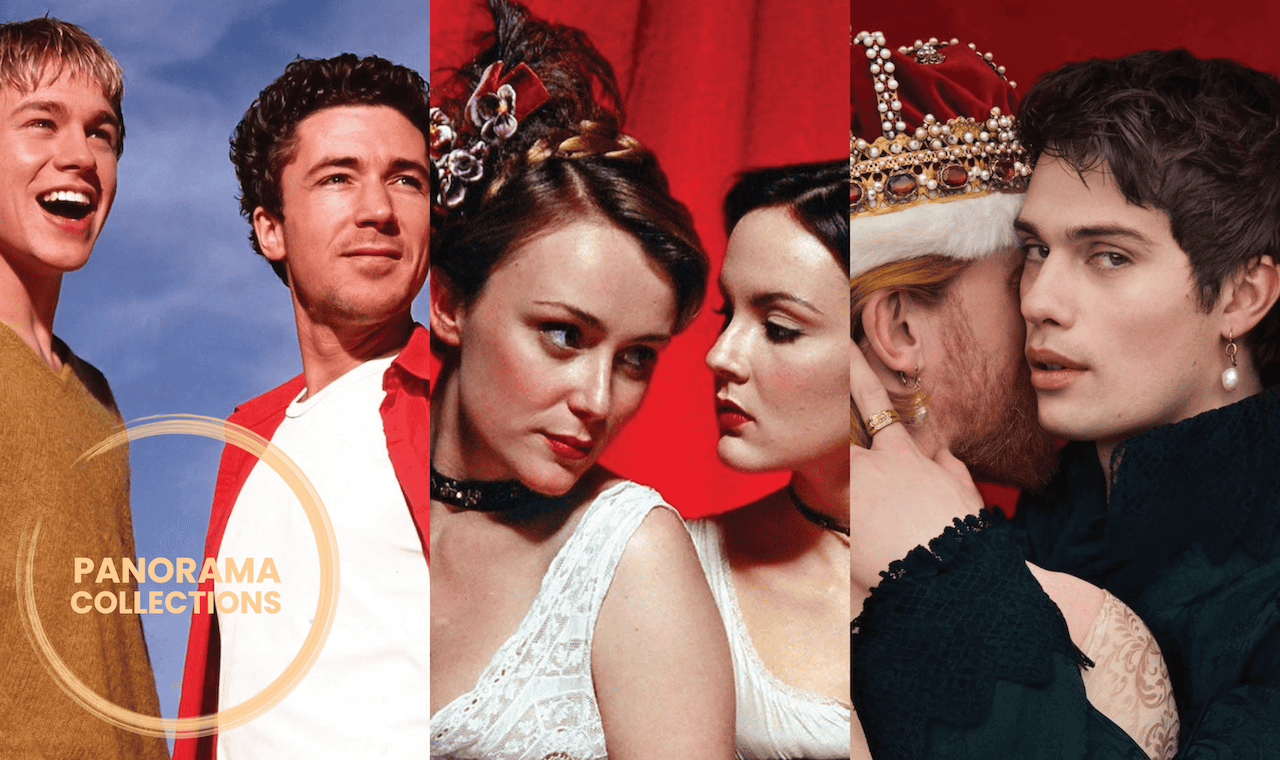
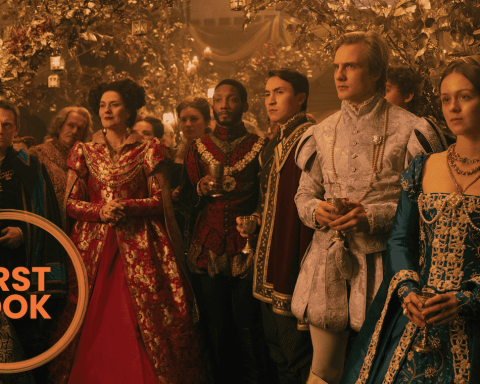
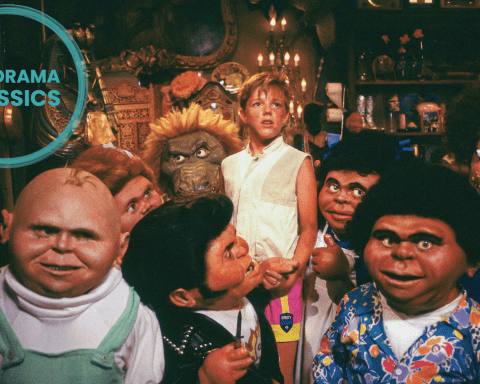

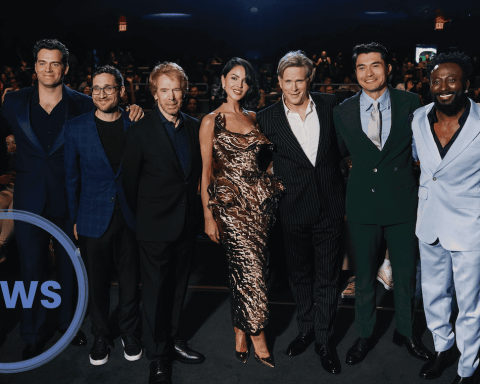
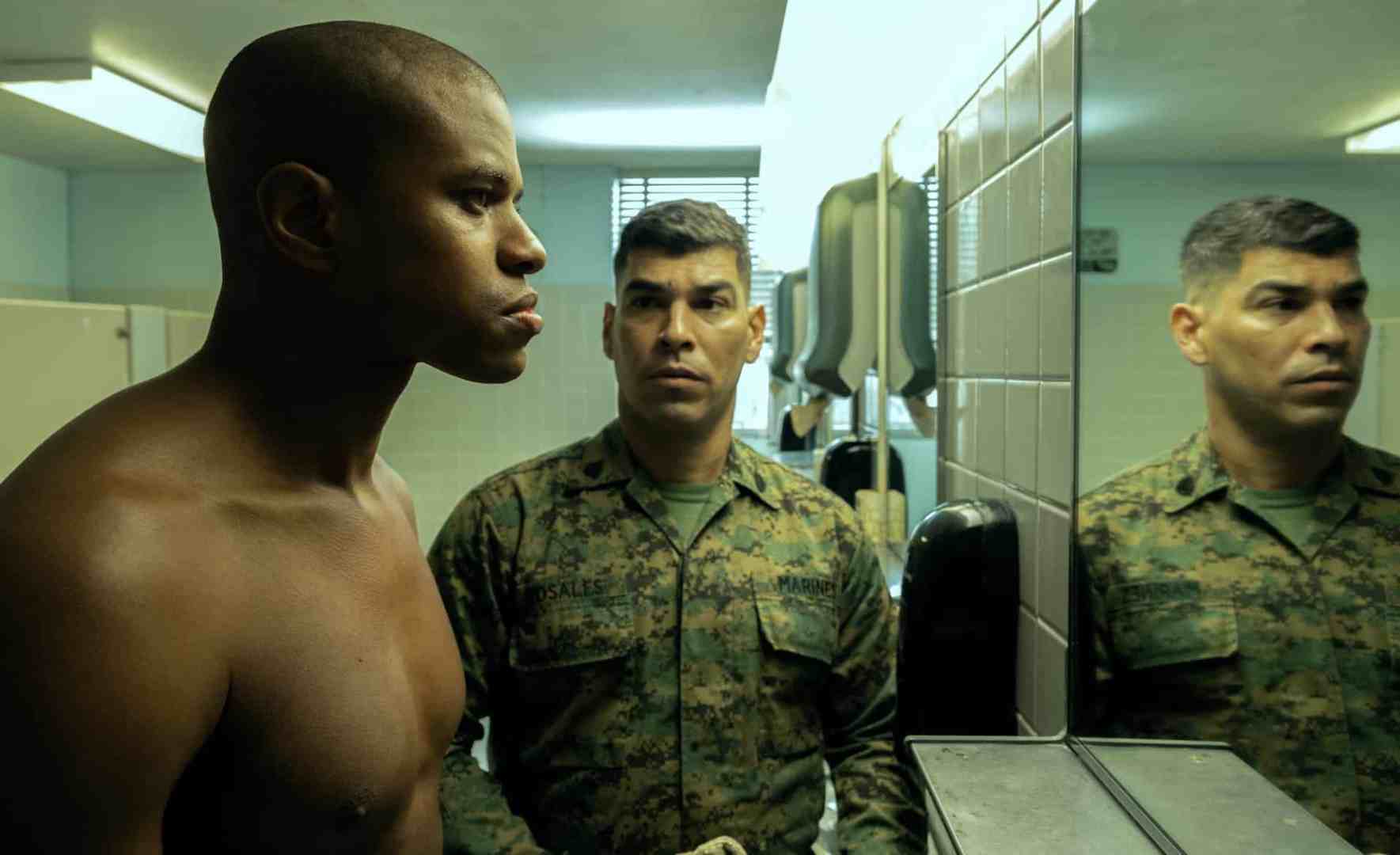
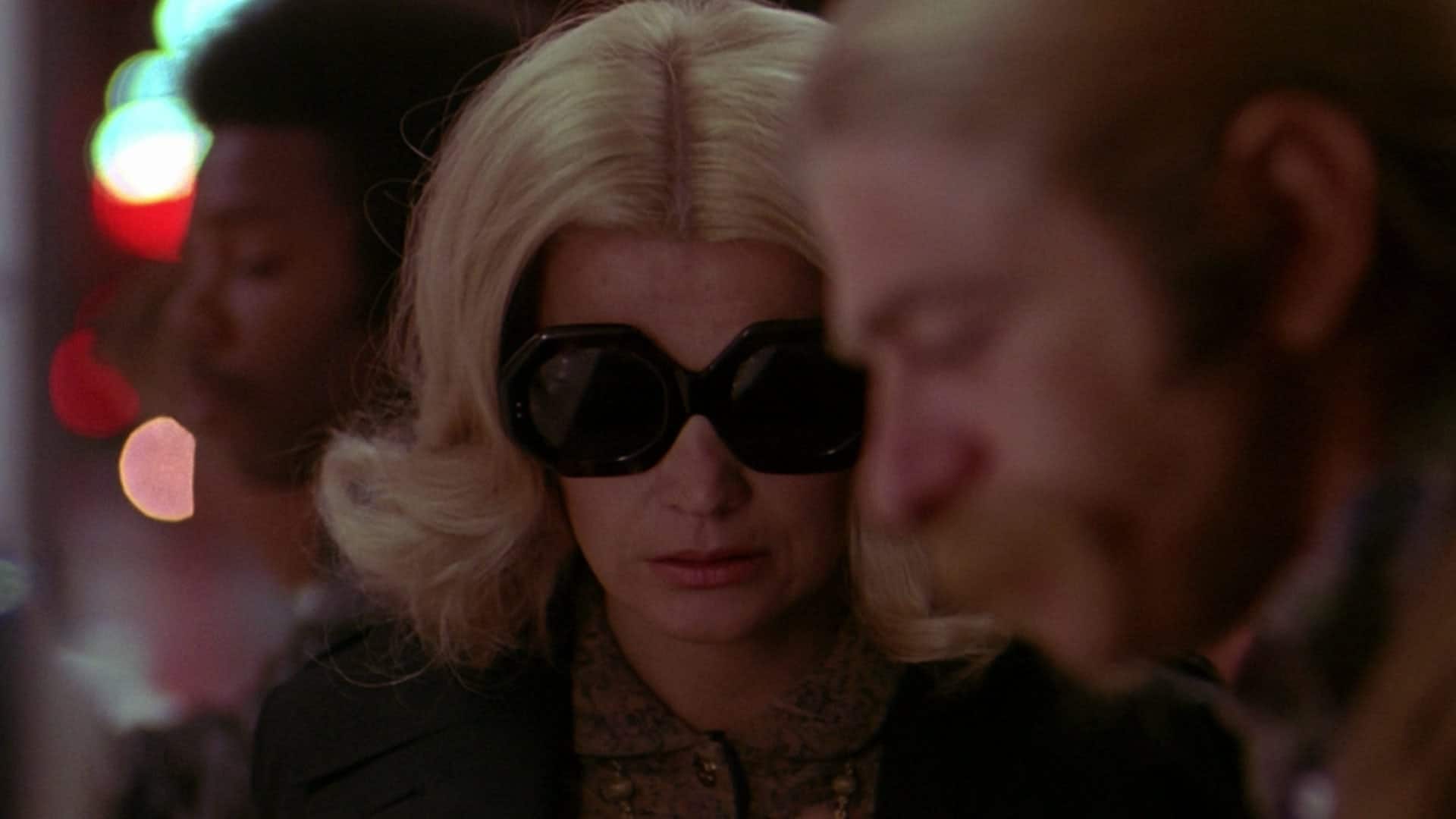
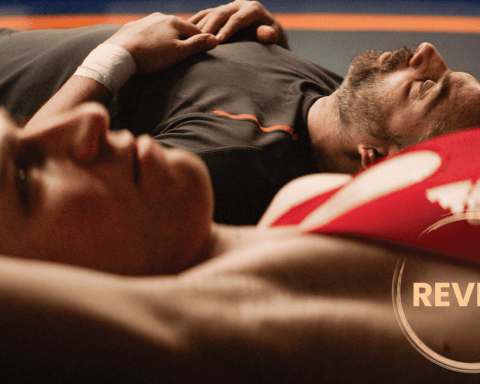
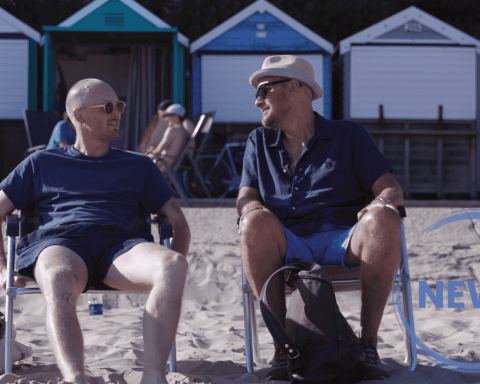
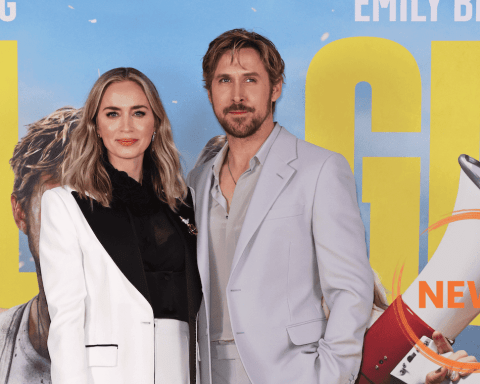

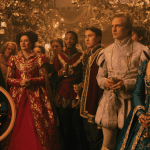
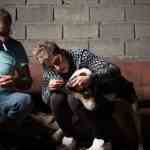
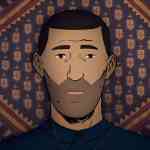
You must be logged in to post a comment.